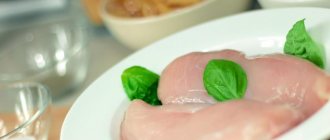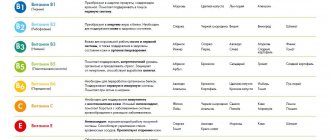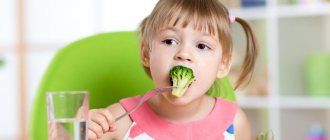Every pregnant woman prepares in advance for a trip to the maternity hospital. She collects a maternity bag, which includes things necessary for her and her newborn baby. An important point that also requires attention is the mother’s nutrition during the postpartum period. The expectant mother should think about her diet in advance. Relatives will need to provide a list of what food they can bring after the birth. In most maternity hospitals, nutrition leaves much to be desired, and mother and baby require a balanced diet.
What food to take with you to the hospital
Of course, something that will not spoil, so as not to risk your own and your little one’s health. God grant that you give birth quickly, but the matter may drag on in earnest, and after that you can go away for a long time. So the food you take should be fresh, regardless of whether you eat it in a few hours or in two days.
It is convenient to take with you dry cookies (biscuits, oatmeal), crackers, crackers. These can be dried fruits (raisins, apples, prunes, but be careful with dried apricots) or fresh fruits (for example, green apples and bananas, but not everyone recommends them).
Don't forget to drink. You will not only really want to drink, but you will also need it. An excellent option in the first days after childbirth is still mineral water, birch sap, natural weak teas without additives.
What is better to exclude
Many girls want to quickly return to their normal lifestyle and eat their favorite foods without following any diet. At this point, it is important to understand that a nursing mother’s diet is not a whim or a useless requirement. The well-being and health of the baby directly depends on what the mother consumes.
In order not to endanger the baby’s condition, the new mother is strongly recommended to exclude the following:
- Something that contains flavor enhancers, flavors, dyes and other obscure substances (you must carefully read the composition of what you are using).
- Sweets and confectionery (in addition to large amounts of sugar, such food is rich in vegetable fats).
- Baked goods and all flour products (loaf, bread, pasta, buns, pies, pancakes, pancakes, bagels).
- Sweet soda and sparkling mineral water.
- Supermarket snacks (corn sticks, potato chips, flavored crackers).
- Breakfast cereals (cereals, chocolate balls, etc.).
- Sweet curd masses and yoghurts with fruit fillings.
- Packaged juices and energy drinks.
- Sauces (mayonnaise, ketchup, mustard).
- Salt, sugar, hot seasonings.
- Sausage, smoked meats, salted fish.
- Canned food (both homemade and store-bought are prohibited).
- Citrus fruits (oranges, lemons, grapefruits) and exotic fruits (pineapple, papaya, kiwi).
- All types of cabbage (white, red, broccoli).
- Legumes (beans, peas, lentils).
- Mushrooms.
- Seafood and red fish (salmon, trout).
- Red berries (raspberries, strawberries, currants, cherries, cherries).
- Nuts and seeds.
Such products can be very harmful to the child: cause bloating or an allergic reaction, constipation, diarrhea, and other health problems.
What to order for lunch at the maternity hospital
However, sooner or later, the relatives will come to congratulate the mother, certainly bringing her something hot to eat. What can you eat in the maternity hospital?
The answer to this question may be ambiguous. For many years, women in labor were served a special dietary table in the maternity hospital. Some foods and dishes must have been present and others absent. During the first days after giving birth, my mother ate in a special way, with obligatory consideration of what was allowed and what was prohibited. A lot has changed today. Few maternity hospitals still maintain this tradition. And new mothers themselves look at this a little differently than new grandmothers.
Many modern women are deeply convinced, adhere to and demonstrate the effectiveness of the following principle: you can eat everything that you usually ate and what you want, only carefully and a little at a time. Whether it’s a steamed cutlet with buckwheat or chocolate-covered orange slices, if you’re used to eating this way and you want just that kind of food, go ahead. However, you definitely need to start with small doses and very carefully monitor the child’s reaction: colic, rash, stool, anxiety. To track it, it is convenient to keep a food diary from the first hours after birth. So a pen and notepad can be included in the list of required things that you will take with you to the maternity hospital.
What is possible
If relatives are engaged in delivering food for the mother, they must understand what can be transferred and what food can not be brought in the future. When trying to feed a woman, husbands often choose high-calorie and fatty foods, without even thinking about whether they can bring it to the maternity hospital or not.
Pork cutlets fried in oil, dumplings with sour cream, apple pie, milk chocolate, cabbage rolls, pasta with fatty cheese, sandwiches with sausage and butter will only harm the health of a young mother.
You should only consume light and dietary foods, without salt and fatty sauces:
- porridge without additives, with water;
- fruits - bananas and green apples;
- vegetables - zucchini, eggplant, carrots, potatoes;
- boiled meat or fish;
- fermented milk products of medium fat content and without additives - kefir, yogurt, cottage cheese;
- hard cheese - low-fat and mild;
- herbal teas;
- light soups;
- homemade compotes without sugar.
But this list of what can be taken to the maternity hospital after delivery is not final and may require adjustments. The doctor prescribes a diet, taking into account the woman’s health condition and her needs. If the pregnancy was difficult or there were stitches and tears, the nutritional requirements will be stricter. If the baby has digestive problems in the first days, the list of allowed foods will be extremely limited. This measure is forced, and you need to strictly adhere to it in order to avoid health complications.
Golden mean
However, not everyone is so carefree. Most women giving birth still believe that they should limit themselves in some ways. We are talking about frankly allergenic products that are potentially dangerous for a little person. These may include the following:
- citrus;
- chocolate, coffee;
- nuts (hazelnuts, peanuts, walnuts);
- red berries and fruits and others.
More on the topic
What can you eat after giving birth?
What soups can you eat after childbirth?
What can you eat after childbirth: nutrition for a nursing mother in the first days and months
What fruits can you eat after giving birth?
What kind of discharge should there be after childbirth?
Naturally, you should forget for a while about mayonnaise, chips and other nasty things with preservatives, emulsifiers, stabilizers and other poisons. You should also choose healthy foods that are prepared accordingly.
In general, these mothers, although not adherents of strict diets, advocate for some reasonable, from their point of view, restrictions. The main rule of this “diet model” is healthy variety.
As soon as possible
Returning to normal life, you need to know moderation in everything. A week after arriving home, you can try to introduce your favorite foods into your diet. The main thing is to do this in small quantities and not overeat. It is important to observe the baby’s reaction at this moment: watch for rashes, redness, and a tummy ache. It is also worth monitoring your stool, the regularity of bowel movements and the appearance of stool.
Once a day you can try one new dish. If the baby feels unwell, the irritant must be immediately excluded from the diet. When mom is extremely careful, complications can be avoided. It is important to do everything wisely and not rush to return too quickly to your usual way of life. A woman must understand that her beloved child is much more valuable and more important than just her favorite dish.
What can a mother in labor eat after giving birth?
? This question often interests young mothers themselves, as well as their relatives who donate things and food to the maternity hospital. In general, women in labor are not always satisfied with the menu offered to them in the maternity hospital. The hospital kitchen does not shine with any special delights, and therefore relatives often bring new mothers something tasty.
But women in labor should prepare for the fact that not all favorite foods are allowed for a young mother. In some maternity hospitals, they check transfers, allowing only acceptable products through. It is better to foresee this moment in advance, so as not to waste money and not buy various expensive delicacies and fruits, which are obviously contraindicated for women in labor. Even if the maternity hospital does not check transmissions, it is better to know for yourself what women in labor can eat
, which foods are safe immediately after childbirth, and which ones should not be included in the diet.
General Tips
It is important not only to know what to eat after childbirth, but also to consider how foods can affect the child’s health. To do this, it is worth keeping a food diary in which to record the foods introduced into the diet and the child’s reaction to them. In order to know exactly what it is, you can diversify the menu a day with no more than one thing, and it is advisable to do this in the morning. In this case, even if the baby has colic, it will go away until the evening and he will sleep peacefully at night. When choosing quality, you should also not forget about quantity: the likelihood that one banana will cause a negative reaction is minimal, but if you eat a kilogram of them, it can “sprinkle” even a child whose mother is not yet familiar with allergic reactions.
You should also not be frequent in introducing new products, since each of them requires time to increase the dose and make sure that the child does not have allergies.
Photo gallery: healthy foods in the postpartum period
Oatmeal cooked in water is a hypoallergenic and healthy food.
Baked apples do not increase the acidity of a woman’s stomach, and also help normalize stool after childbirth.
Ordinary broth is the only allowed dish for the first time after a cesarean section
Boiled chicken meat restores a woman’s strength after childbirth, and also contains vitamins necessary for mother and baby.
Fermented milk products in a certain amount saturate the body with calcium, improve the functioning of the gastrointestinal tract, increase and stabilize lactation
Rule three
Every woman after childbirth strives to quickly return to her previous shape. However, doing this through diets is strictly prohibited. The female body is not yet ready for such stress, and any diet can lead not only to a decrease in lactation, but also to serious psychological problems. But nature arranged everything so that the mother could take care of her child for the first few weeks, giving the woman a certain supply of energy and strength.
If you want to lose weight, then just follow the above recommendations and start doing the physical exercises allowed after childbirth. Do not forget that the regimen and quality of your diet affects not only the amount of milk, but also the health of the baby.
What is prohibited
Having found out which foods are ok after childbirth, it remains to figure out those that should be completely abandoned or abstained. When breastfeeding, alcohol is prohibited, in any quantity and of any kind. Even the minimum content of ethyl alcohol in milk can lead to serious poisoning. Large doses of alcohol are life-threatening for a child. At first, you should not eat citrus fruits, chocolate, seafood, or caviar, as all of these are strong allergens. This also applies to red berries. Although if it later turns out that the child is not allergic, then sometimes you can treat yourself to strawberries and oranges, but in moderation. You should not get carried away with excessively fatty foods, as well as products that contain dyes and preservatives; they will not benefit either mother or child.
Nutrition after caesarean section
What deserves special mention is what foods you can eat after childbirth by caesarean section. On the first day, a woman is allowed only liquid, to which liquid puree soups are added on the second day. Gradually, fruits, vegetables and other products that are present on the menu of any nursing mother are added to the diet. This is due to difficulties with bowel movements, which should not occur after surgery. If the intestines are overcrowded, and its condition is directly related to the quality of nutrition, then it puts pressure on the uterus, preventing it from contracting and preventing the body from recovering. These rules also apply to women who received stitches due to tears or cuts in the perineum. For them, normal stool is no less important than for those who are recovering from surgery.
Rule two
After giving birth, a woman should definitely eat the following foods:
- soups;
- porridge;
- fish and lean meat;
- boiled and steamed fruits and vegetables;
- potato;
- vegetable oil;
- processed and hard cheeses;
- pasta;
- nuts in small quantities.
Many, after reading the above list, will say that this diet is not strict at all. But it is worth adding some additions to this list of products.
- Porridge should be cooked in water without sugar. It is best to opt for oatmeal.
- Soups should not contain cabbage or strong broth.
- Vegetables and fruits should not be raw or fried.
- Meat and fish can be baked in the oven or boiled. An excellent addition to them would be boiled beets, which are extremely useful for women in the postpartum period.
- You can eat nuts in minimal quantities - a small handful will provide you with half your daily calorie intake.
There are already official data showing that a woman needs only 800 kilocalories so that her body can produce a sufficient amount of milk. Moreover, during pregnancy a certain amount of fat is deposited, which at first provides approximately 300 kilocalories for milk production every day. Therefore, a woman needs to gain only 500 kilocalories per day to produce milk. All other energy reserves go to the needs of the female body. During breastfeeding, a young mother needs a total of about 2,700 kilocalories per day.
What should the diet be like?
Food during this period of time for a woman in labor should be nutritious, tasty and healthy. The body needs vitamins, minerals and healthy foods with the right amount of the right fats, proteins and carbohydrates. The first milk from the breast that the baby receives should be of high quality and nutritious. The type of food the mother consumes directly affects this.
The focus should be on light but satisfying dietary treats.
It is also important to ensure that you do not mistakenly consume anything that can cause an allergic reaction in your baby. If a woman herself is not able to build a correct and rich diet, she can seek help from a doctor or hire a professional nutritionist. During the first examination, the doctor usually provides a list of prohibited and permitted foods in the maternity hospital after childbirth. The most important thing is that the food brings maximum benefits and helps the body recover faster.
After painful contractions and the process of delivering the baby, the young mother may feel very hungry. At this time, an exhausted body can be pleased with a small snack. You can take foods rich in glucose and carbohydrates with you to the maternity hospital after giving birth. They are the ones who quickly give strength and energy, and also restore vigor.
Read also: Why are disposable panties needed after childbirth?
The first snack in the maternity hospital may consist of:
- several pieces of dark chocolate;
- sweet bar with oatmeal and fruit;
- hematogen purchased at a pharmacy;
- sweet fruits (apple, banana, persimmon);
- dried fruits;
- dry bread.
Whatever the girl chooses from the above, it is worth remembering about her disturbed water balance. For good health, it is necessary to drink a lot of clean water, warm compote without sugar or weak tea without additives. Small snacks can be put in your bag and taken out if needed. It is worth remembering that the food should not be perishable; there will be no opportunity to put something in the refrigerator.
What to feed in the maternity hospital after childbirth
After giving birth, they told me to call and bring me something, while they were bringing me there, it was time for feeding, in our maternity hospital they fed everything, and there was stewed cabbage, cucumbers, borscht, pea soups, fruits among which even once was an orange ) our girls in the ward were in shock, and at first I ate everything, I thought if they give it in the maternity hospital, then it’s okay, it’s good at least the girls were informed) then I started eating porridge in the morning, and at lunch and for dinner, depending on what they give, mostly They sent me some goodies from home)))
Recommended diet for new mothers in the first three days after childbirth.
Modern women, preparing to embrace the joy of motherhood, read a lot of specialized literature, go to all kinds of trainings and courses. However, even after going through all the stages of preparation and studying the theory of childbirth, young mothers, as a rule, do not know what to eat after childbirth in the first three days
.
Interesting on the web:
- buckwheat porridge cooked in water; a small piece of boiled beef; a piece of hard cheese; dried bread, biscuits or special bread.
On the third day after the birth of the baby, the diet of a nursing mother becomes more varied. It can include:
- Porridge (oatmeal, wheat or millet), cooked in water; water soups with a small amount of potatoes; stewed or steamed vegetables (cauliflower, zucchini, turnips, and rutabaga); From dairy products, a glass of fermented baked milk (low fat content) or bifido-yolk milk is allowed.
A woman in labor can also eat a baked, unsweetened apple. In addition, in order to prevent constipation, it is allowed to consume bran, which is rich in fiber and stimulates intestinal function.
Second recommendation. For a nursing mother, it is extremely important to organize a drinking regime. On the first day after giving birth, a woman is allowed to drink up to 1.5 liters of liquid, preferably weak tea, compote made from dried fruits without added sugar, as well as still mineral water. On the third day, the amount of liquid you drink should be reduced as breast milk begins to flow. Excessive drinking provokes problems with the formation of lactation, for example, lactostasis may occur.










